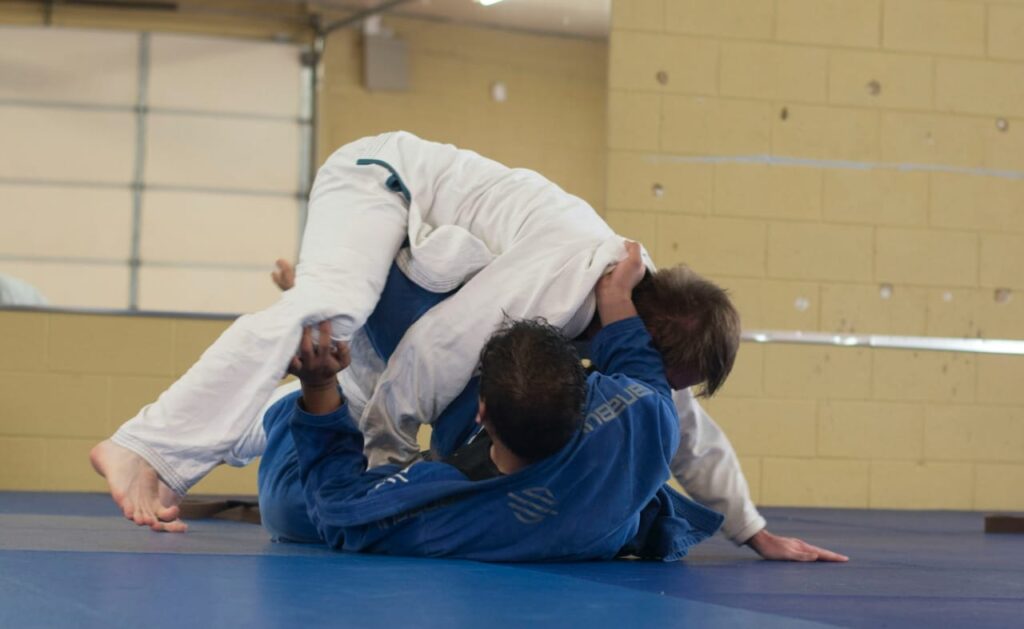Brazilian Jiu-Jitsu (BJJ) is a martial art that focuses on grappling and ground fighting, emphasising the skill of controlling one’s opponent through techniques that force them to submit. Whether you’re a beginner just stepping onto the mat or an experienced practitioner aiming to refine your skills, navigating the journey of BJJ training requires understanding its core aspects, from mastering the basic rolls to executing complex submissions.
Understanding the Basics of BJJ
The Importance of Fundamentals
Starting your BJJ journey can be overwhelming due to the sport’s intricate techniques and physical and mental demands. The first step in your training should be to grasp the fundamental positions and movements. These include learning to safely fall (breakfast), maintain balance, and execute basic rolls and sweeps. These foundational skills are crucial as they form the building blocks for more advanced techniques.
Gradual Progression in Learning
BJJ training is typically structured around belt levels, starting from white to black and with several stages in between. Each level introduces new techniques and concepts tailored to progressively expand the practitioner’s skill set. Beginners must focus on consistency and gradual improvement rather than rushing through techniques to advance to the next belt.
Advancing Your Skills
Developing a Game Plan
As you progress, it’s beneficial to start developing a game plan or a set of techniques you feel most comfortable with. This might involve specialising in specific guards or submissions. Training becomes more focused on refining these chosen techniques and learning how to apply them effectively against different opponents.
Incorporating Live Rolling
Live rolling, or sparring is an essential part of BJJ training. It allows practitioners to test their skills in a controlled environment. This is where you learn the practical application of techniques and understand how to manage real-time decision-making against resisting opponents. It’s essential to approach sparring sessions with a learning mindset, focusing on technique and strategy rather than brute strength.
Mastering Advanced Techniques
Exploring Complex Submissions
Once the basic positions and movements are second nature, advanced practitioners in BJJ begin to explore more complex submissions. These include joint locks, chokes, and other techniques that require precise execution and timing. Training at this stage often involves detailed breakdowns of each movement and understanding leverage and biomechanics.
The Role of Conditioning and Flexibility
Physical conditioning and flexibility play a significant role in the effectiveness of your BJJ techniques. Improved flexibility can increase your range of motion, allowing for more effective guard positions and submission attempts. Meanwhile, conditioning enhances your stamina and strength, which is vital for executing techniques and enduring lengthy sparring sessions.
Critical Considerations for Effective Training
The Importance of a Supportive Environment
The training environment significantly affects your growth in BJJ. A supportive, respectful, collaborative training environment encourages learning and personal development. In places like Baringa, finding the best BJJ gym that fosters a positive learning atmosphere is crucial. It’s not just about the facilities but also about the community and the instructors’ approach to teaching and mentoring students.
Continuous Learning and Adaptation
BJJ is a sport of continuous learning and endless possibilities. Even the most advanced practitioners find that there are always new techniques to master, strategies to understand, and areas to refine. The dynamic nature of BJJ means that the landscape of the sport is constantly evolving, with new moves and counter-moves developed regularly. Staying open to learning and adapting to these changes is crucial for progression. This approach helps one grow as a practitioner and deepens one’s appreciation for the art, reinforcing the philosophy that every training session is an opportunity to improve. Embracing this mindset can transform challenges into stepping stones for success and personal development in Brazilian Jiu-Jitsu.
Collaboration of Ecstasy(Opens in a new browser tab)
Importance of Rest and Recovery
Lastly, it’s vital to recognise the importance of rest and recovery in BJJ. Due to its demanding nature, adequate rest is essential to prevent injuries and allow for muscle recovery. Incorporating rest days and active recovery sessions can significantly enhance your performance and longevity in the sport. Navigating Brazilian Jiu-Jitsu training from the basic rolls to complex submissions is a rewarding journey that offers physical and mental growth. By understanding and respecting the process, continuously learning, and training in a supportive environment, you can effectively progress and enjoy the many benefits BJJ offers. Whether you want to compete or improve your fitness and self-defence skills, training with the best BJJ in Baringa provides a comprehensive platform for personal development.
